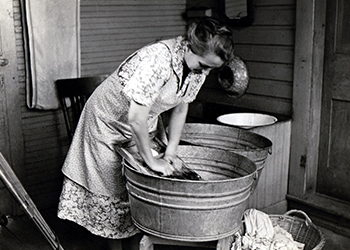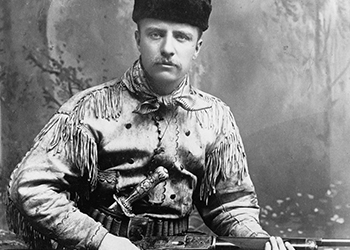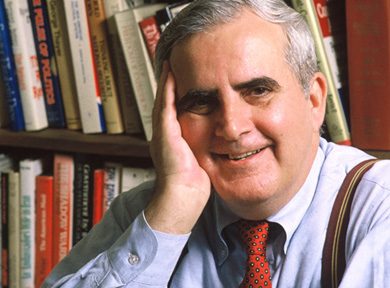 Sunday,September 21 at 9:30 pm. Power for the Parkinsons, narrated by broadcast icon Walter Cronkite, tells the compelling story of the making of the classic New Deal documentary film Power and the Land. In 1939, 75% of American farms were without electricity. While American towns and cities were bright with light, farm families were reading and working by the light of kerosene lanterns. Farm women on wash day pumped water by hand, heated it over a coal stove, then pounded their clothes on a scrub board and hung them out to dry. Without indoor plumbing and bathrooms, family members faced the long walk out back to the "privy." In 1939, FDR's Rural Electrification Administration asked noted filmmaker Pare Lorentz to make a film that would show the advantages of bringing electricity to the farm. After writing a rough script, Lorentz hired Dutch filmmaker Joris Ivens who then brought together an "all star" team featuring Arthur Ornitz and Floyd Crosby as cinematographers, Stephen Vincent Benet as the author of the narration, and Douglas Moore as the composer. Ivens and Helen van Dongen supervised the final editing. Power and the Land, which premiered in St. Clairsville, Ohio, on August 31, 1940, was subsequently shown to millions of American farmers, building public acceptance for the program and paving the way for the modernization of American agriculture.
Sunday,September 21 at 9:30 pm. Power for the Parkinsons, narrated by broadcast icon Walter Cronkite, tells the compelling story of the making of the classic New Deal documentary film Power and the Land. In 1939, 75% of American farms were without electricity. While American towns and cities were bright with light, farm families were reading and working by the light of kerosene lanterns. Farm women on wash day pumped water by hand, heated it over a coal stove, then pounded their clothes on a scrub board and hung them out to dry. Without indoor plumbing and bathrooms, family members faced the long walk out back to the "privy." In 1939, FDR's Rural Electrification Administration asked noted filmmaker Pare Lorentz to make a film that would show the advantages of bringing electricity to the farm. After writing a rough script, Lorentz hired Dutch filmmaker Joris Ivens who then brought together an "all star" team featuring Arthur Ornitz and Floyd Crosby as cinematographers, Stephen Vincent Benet as the author of the narration, and Douglas Moore as the composer. Ivens and Helen van Dongen supervised the final editing. Power and the Land, which premiered in St. Clairsville, Ohio, on August 31, 1940, was subsequently shown to millions of American farmers, building public acceptance for the program and paving the way for the modernization of American agriculture.
 Sunday,September 21 at 10:30 pm. This is the exciting story of a physically challenged young man from Harvard who came to the western frontier in 1883. Theodore Roosevelt bought a ranch, learned how to ride, shoot, hunt and acquired the skills that would make him a war hero and American President. It was in the Badlands of Dakota where young Roosevelt became a cowboy and learned about democracy and the American West. Filmed on location at the Roosevelt ranches in the heart of the beautiful and wild Badlands of North Dakota, this coming of age story traces the life experiences of the nation's 26th president through the eyes of nationally acclaimed historians H. W. Brands, Douglas Brinkley, Clay Jenkinson, and great-grandson Tweed Roosevelt.
Sunday,September 21 at 10:30 pm. This is the exciting story of a physically challenged young man from Harvard who came to the western frontier in 1883. Theodore Roosevelt bought a ranch, learned how to ride, shoot, hunt and acquired the skills that would make him a war hero and American President. It was in the Badlands of Dakota where young Roosevelt became a cowboy and learned about democracy and the American West. Filmed on location at the Roosevelt ranches in the heart of the beautiful and wild Badlands of North Dakota, this coming of age story traces the life experiences of the nation's 26th president through the eyes of nationally acclaimed historians H. W. Brands, Douglas Brinkley, Clay Jenkinson, and great-grandson Tweed Roosevelt.
 Thursday, September 11 at 10:30 pm
Thursday, September 11 at 10:30 pm
"Bring me only bad news. Good news weakens me." A film about a man, a magazine and the media, How Washington Really Works is a 30-minute documentary about Charles Peters, the founding editor of The Washington Monthly. Wanting to examine Washington the way an anthropologist would a South Sea Island, Peters began The Washington Monthly in 1969 and served as its editor in chief for 32 years, retiring in 2001. The Monthly focused on the culture and politics of Washington and government operations, but also cast a skeptical eye on how the national press reported on Washington and government. As well as being an under-the-radar journalist to the general public, Peters and The Monthly were at the forefront of the neoliberal movement that spurred the Democratic Party to re-evaluate itself. While neoliberalism has become known as an economic policy that championed unrestricted markets and non-regulatory regimes, Peters' neoliberal manifesto was about community, democracy, and prosperity. Using a two-year tour of duty scheme borrowed from the Peace Corps, he developed a stellar corps of young writers who apprenticed in what has been called "Charlie's Journalism School of Indentured Servitude." While not only experiencing financial duress, young reporters also had to endure Peters' unique editing style called "rain dancing." Also featured in the film are Jonathan Alter, Jennifer Barrett, Taylor Branch, Matthew Cooper, Michelle Cottle, Gregg Easterbrook, James Fallows, Paul Glastris, David Ignatius, Nicholas Lemann, Suzannah Lessard, Joe Nocera, Sen. John D. "Jay" Rockefeller, and Amy Sullivan.
 Shift Change, a documentary film by veteran award-winning filmmakers Melissa Young and Mark Dworkin, tells the little known stories of employee-owned businesses that compete successfully in today's economy while providing secure, dignified jobs in democratic workplaces. With the long decline in U.S. manufacturing and today's economic crisis, millions have been thrown out of work, and many are losing their homes. The usual economic solutions are not working, so some citizens and public officials are ready to think outside of the box, to reinvent our failing economy in order to restore long-term community stability and a more egalitarian way of life. There is growing interest in firms that are owned and managed by their workers. Such firms tend to be more profitable and innovative, and more committed to the communities where they are based. Yet the public has little knowledge of their success, and the promise they offer for a better life.
Shift Change, a documentary film by veteran award-winning filmmakers Melissa Young and Mark Dworkin, tells the little known stories of employee-owned businesses that compete successfully in today's economy while providing secure, dignified jobs in democratic workplaces. With the long decline in U.S. manufacturing and today's economic crisis, millions have been thrown out of work, and many are losing their homes. The usual economic solutions are not working, so some citizens and public officials are ready to think outside of the box, to reinvent our failing economy in order to restore long-term community stability and a more egalitarian way of life. There is growing interest in firms that are owned and managed by their workers. Such firms tend to be more profitable and innovative, and more committed to the communities where they are based. Yet the public has little knowledge of their success, and the promise they offer for a better life.

 Live Radio
Live Radio